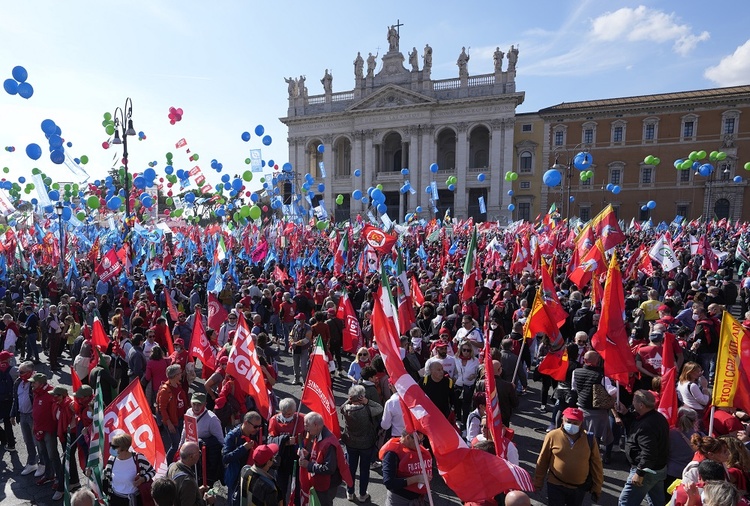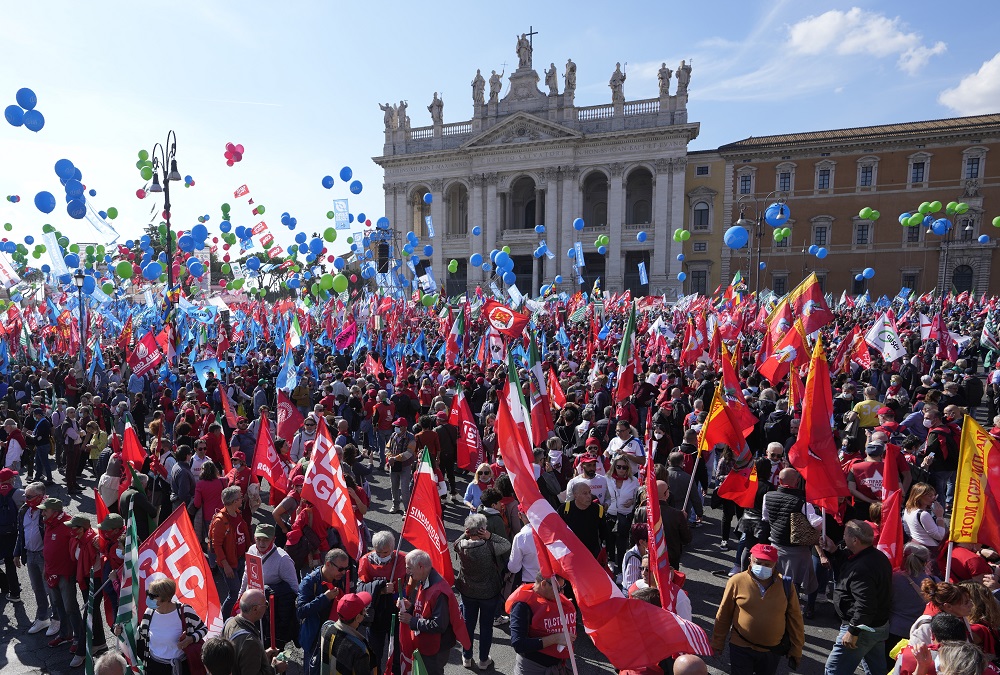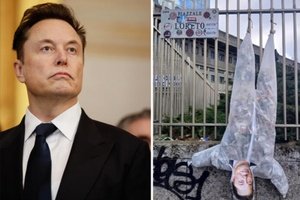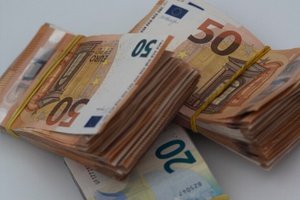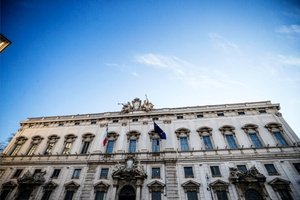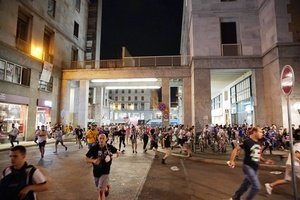The rally came a week after right-wing extremists forced their way into the headquarters of CGIL, Italy’s most powerful labour confederation, while protesting the country’s COVID-19 “green pass” mandate.
From Friday, the green pass is required for all workers in both the private and public sectors.
The certificate shows that the carrier has been vaccinated, tested negative for COVID-19 in the previous 48 hours or recovered from the virus.
Workers who violate the rules risk heavy fines and being suspended from their jobs without pay.
The attack on the CGIL base was condemned by the government and across the political spectrum.
Leaders of the neo-fascist Forza Nuova were subsequently arrested on charges of allegedly orchestrating the violence and the group’s website was taken offline pending a criminal investigation.
“It was an attack on democracy,” CGIL secretary general, Maurizio Landini, said.
“If anyone has thought of intimidating us... they must know that CGIL and the workers’ movement have defeated fascism in this country and regained democracy...they don’t scare us.”
Protesters called for the dissolution by law of all pro-fascist organisations, a prospect that is already under debate at parliamentary level in relation to Forza Nuova.
Formed in 1997, Forza Nuova calls for an abortion ban, a total halt to immigration and the repeal of hate speech laws.
It has never achieved a score of 0.5 per cent at any election, even when allied with other far-right groups.
Many politicians have called for the party to be banned.
“We’ve had enough of violence by neo-fascist groups,” leading Democratic Party (PD) lawmaker, Emanuele Fiano, said.
Health Minister Roberto Speranza said such violence is “unacceptable”, while Foreign Minister Luigi Di Maio wrote on Facebook: “These are not protesters, they are criminals.”
Saturday’s anti-fascist demonstration was supported by the PD, the populist Five Star Movement (M5S) and left-wing Free and Equal (LeU) group.
It took place against the backdrop of tensions over Italy’s green pass, with protests unfolding around the country including at three of its six major ports.

